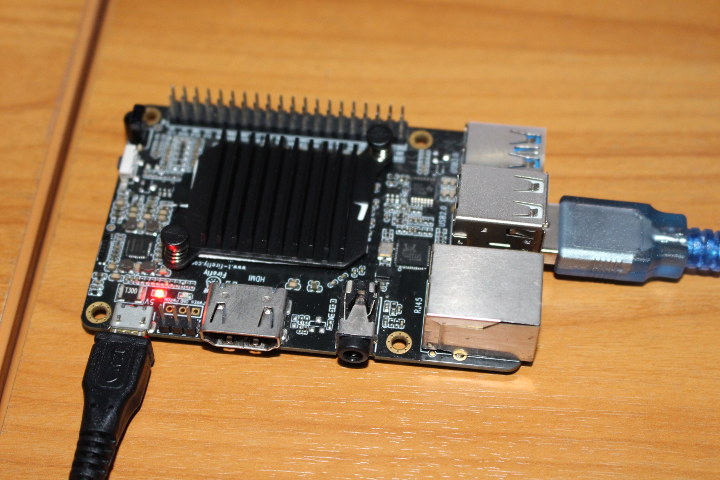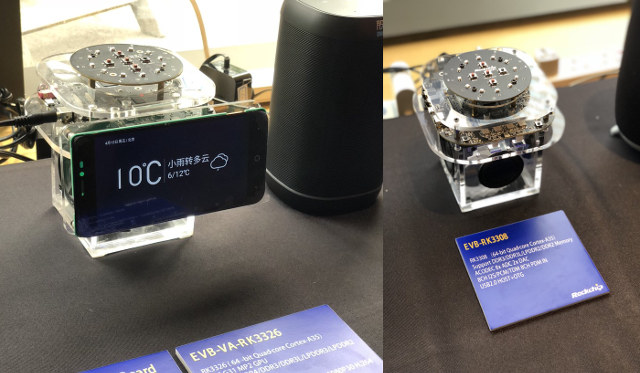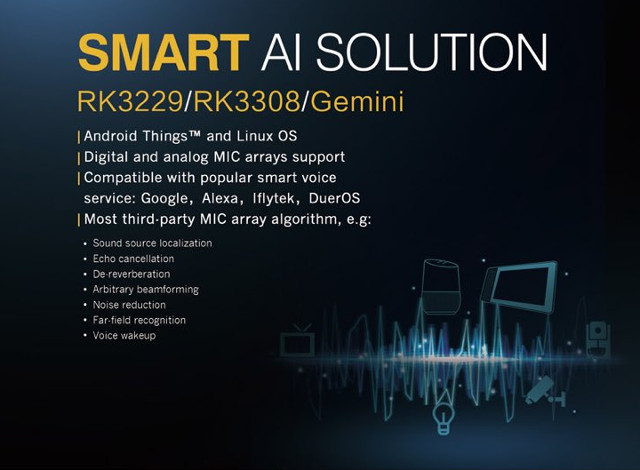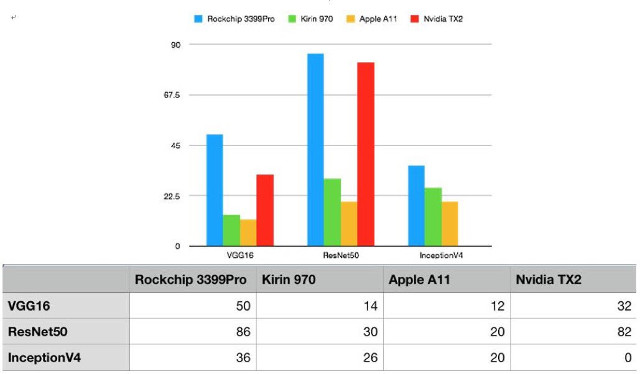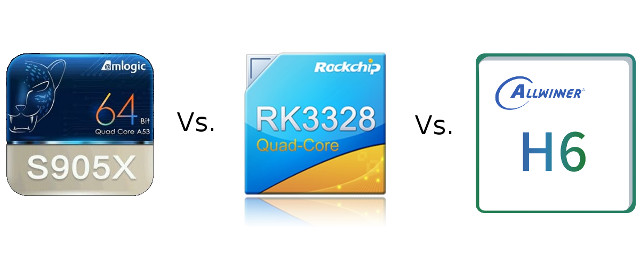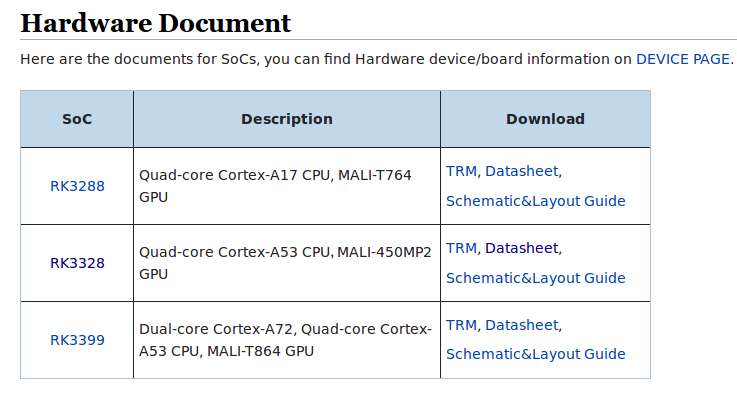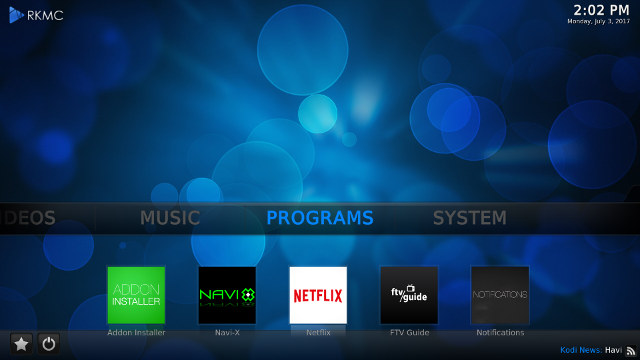It’s been possible to flash firmware to Rockchip devices in Linux with upgrade_tool command line tool for many years, but the utility is closed-source and only supports “RK Firmware” files that are also used for OTA firmware updates, but not “raw firmware” that you’d flash directly to micro SD cards for example. This week-end as I played with ROC-RK3328-CC board, I encountered some instability issues with micro SD cards, so I instead relied on an eMMC flash module. The only problem was that Firefly Team only releases “raw firmware” files, so I was unable to use upgrade_tool, and instead found out rkdeveloptool open source utility was used to flash raw firmware images in Firefly’s Wiki. The first step is to connect a male to male USB Type A cable (like that one on eBay) between the board and the host computer, and connect a USB power adapter to the board. […]
Rockchip Reveals RK3308 & RK3326 Evaluation Boards for Smart Speakers and Smart Displays
Rockchip introduced RK3308 & Gemini quad core Cortex-A35 processors for smart AI solutions last month, and now the company has shared one more tweet about evaluation boards based on RK3308 and RK3329 (Gemini) processors for respectively smart speakers and smart displays. EVB-VA-RK3326 is a smart display evaluation platform powered by Rockchip RK3326 processor with four Cortex A35 core and a Mali-G31 MP2 GPU. It comes with a main board, a microphone array, some speaker, and a display. EVB-RK3308 looks very similar with instead feature a main board powered by RK3308 quad core Cortex A35 processor which supports DDR3/DDR3L/LPDDR2/DDR2 memory, and comes with an audio codec with 8x ADC/2x DAC, support for 8-channel I2S/TDM, and USB 2.0 host + OTG interface(s). That’s the only information we have since the company has not published any details on their website. If you represent a company and are interested in developing products based on […]
Rockchip Unveils RK3308 & Gemini Cortex-A35 Processors for Smart Speakers
Rockchip has posted a tweet about smart speakers, specifically about Midea AI speaker based on Rockchip RK3229, but the second image is what caught my eyes, as it reveals two new Arm Cortex A35 processor designed for “Smart AI solutions”, namely RK3308 and “Gemini” Processor. Rockchip RK3308 “mainstream” processor specifications: CPU – Quad core Cortex A35 processor GPU – TBD (maybe none?) Audio Integrated 8-ch ADC and hardware VAD (Voice Activity Detection) module Multi-channel PDM/I2S/TDM audio interface Rockchip Gemini “high-end” processor specifications: CPU – Quad core Cortex A35 processor GPU – Mali Dvalin MP2 GPU Audio – “high-end smart audio solution”; multi-channel PDM/I2S/TDM audio interface Video I/O – LCD screen & camera support Rockchip will provide support for Android Thing and Linux for the processors, as well as integration with MIC arrays boards and popular voice services such as Amazon Alexa, Google Assistant, Baidu DuerOS, and others. Arm Cortex A35 […]
Rockchip RK3399Pro SoC Integrates a 2.4 TOPS Neural Network Processing Unit for Artificial Intelligence Applications
Rockchip RK3399 (aka OP1) SoC was launched in 2016 with an hexa core Arm Cortex A72/A53 processor, Mali-T860MP4 GPU, support for 4K video decoding, and high speed interfaces like USB 3.0 and PCIe, as well as Gigabit Ethernet. The processor is found in Chromebooks, TV boxes, development boards, and other devices. The company has unveiled an upgraded “Pro” version of the processor at CES 2018. Rockchip RK3399Pro appears to have most of the same features as its predecessor but adds a neural network processing unit (NPU) delivering up to 2.4 TOPS for artificial intelligence and deep learning applications. The company claims that compared to traditional solution, the computing performance of typical deep neural network Inception V3, ResNet34 and VGG16 models on RK3399Pro is improved by almost one hundred times, and power consumption is less than 1% than A.I. solutions implemented using GPU acceleration. Based on the information provided in the […]
Rockchip RK3288 To Be Phased Out Soon? GPD XD+ Android Console To Get Mediatek MT8176 SoC, 4GB RAM Upgrade
[Update: I have now seen an email exchange with ASUS replying that Rockchip RK3288 will still be in production for 5 years, so GPD claims that manufacturing will stop for RK3288 may be incorrect, or misunderstood Update 2: Rockchip has now confirmed RK3288 will not be phased out. So I’m guessing there may have been info lost in translation with GPD simply not manufacturing their own RK3288 board anymore] Rockchip RK3288 32-bit Arm processor was first spotted in a company presentation in the summer of 2013, before being announced – with some confusion (Cortex A12 vs A17) – at CES 2014 in January. The quad core Cortex A17 processor had then its moments of glory with inclusion in products such as Chromebooks (2015), and ASUS Tinker board SBC earlier this year. Another product based on the processor is GPD XD Android game console, but according to a report on reddit, […]
Amlogic S905X vs Rockchip RK3328 vs Allwinner H6 Processors – Benchmarks & Features Comparison
Rockchip, Amlogic, and Allwinner are all battling for the lower and mid-range segments of the TV box market, so it may be interesting to compare their solutions. We won’t look into the ultra low-end market with 32-bit ARM Cortex A7 processor, but instead compare some of the recent quad-core 64-bit ARM Cortex A53 processor for 4K HDR TV box from the company with respectively Amlogic S905X, Rockchip RK3328, and Allwinner H6 SoCs. We’ll compare some of the benchmarks obtained with Android TV boxes, as well as other features like video support, USB, and Ethernet interfaces. S905X vs RK3328 vs H6 Benchmarks Let’s start with results for popular Android benchmarks: Antutu 6.x, Vellamo 3.x, and 3DMark Ice Storm Extreme v1.2 with results obtained from 3 TV boxes: Mini M8S II (Amlogic S905X), A95X R2 (Rockchip RK3328), and Zidoo H6 Pro (Allwinner H6). A score is highlighted in green is there’s a […]
Rockchip Has Setup an Official Open Source Website with Software & Hardware Documentation, Source Code
As a young engineer, I first understood the importance of good documentation thanks to an incomplete Holtek MCU datasheet that made us waste weeks of development, and the value open source software thanks to Sigma Designs’ SDK that was full of binary blobs with our applications often crashing inside those, leading to software development delays, especially since we had access to limited support. More recently, if you ever worked with the most popular Chinese processors found in ARM Linux development board, usually made by Allwinner, Amlogic, or Rockchip, you must have gone through roadblocks due to a lack of documentation and software support. So far, Allwinner is purely relying on linux-sunxi community and “leaks” of their documentation and SDKs, while Amlogic has had their “open linux” microsite for several years, but you won’t find complete documentation like technical reference manual, schematics, and part of the source code requires you to […]
How to Install RKMC “Kodi for Rockchip” App in your TV Box
I’ve started playing with Vorke Z3, an Android 6.0 TV box based on Rockchip RK3399 , and saying that Kodi 17.3 – installed from the Google Play Store – is not working so well is an understatement. The other Rockchip TV boxes I’ve recently reviewed with Android 6.0.1 such as Yundoo Y8 and A95X R2 are all using TVMC, a fork of Kodi 16.1 specifically designed for Rockchip devices. However, there’s no source code for that app, but a Rockchip engineer is maintaining his own fork of Kodi, with the code and some binaries libraries released on Github. The project is called RKMC. I did install the app, but I misunderstood part of the instructions at first, and the device would not boot anymore. I lost many hours of work, as I had to reflash the firmware. So I’ll show how I installed it in Vorke Z3 TV box. You […]


